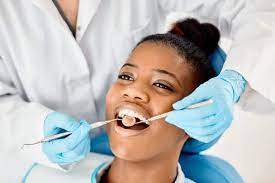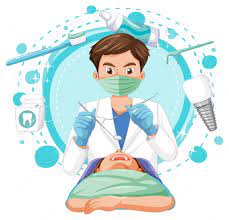The Ultimate Guide to Effective Dental Care: Tips and Techniques
Taking care of your dental health is crucial for your overall well-being. Good dental care not only contributes to a healthy and confident smile but also prevents various oral health issues. Here’s the ultimate guide to effective dental care, including tips and techniques:
- Brushing:
- Frequency: Brush your teeth at least twice a day, preferably in the morning and before bedtime.
- Technique: Use a fluoride toothpaste and a soft-bristle toothbrush. Hold the brush at a 45-degree angle to your gums and use gentle, circular motions. Don’t forget to brush your tongue and the roof of your mouth to remove bacteria.

- Flossing:
- Frequency: Floss once a day to clean between teeth and remove debris that your toothbrush can’t reach. Check into Boronia Dental Clinic.
- Technique: Use about 18 inches of dental floss, wind most of it around your middle fingers, and hold a small section between your thumbs and index fingers. Gently slide the floss between your teeth and curve it around each tooth in a C shape.
- Mouthwash:
- Type: Consider using an antimicrobial or fluoride mouthwash as part of your dental care routine. Consult your dentist for recommendations.
- Usage: Rinse according to the product instructions. Mouthwash can help kill bacteria, freshen your breath, and strengthen enamel.
- Dental Visits:
- Frequency: Schedule regular dental check-ups every six months. Your dentist can catch issues early and provide professional cleaning.
- Importance: Professional cleanings remove plaque and tartar buildup that brushing and flossing can’t entirely eliminate. Regular check-ups help detect problems like cavities, gum disease, or oral cancer.
- Balanced Diet:
- Avoid Sugary Foods: Limit sugary snacks and beverages, as they contribute to tooth decay.
- Eat Nutrient-Rich Foods: Consume foods high in vitamins A and C, calcium, and phosphorus. These nutrients are essential for maintaining strong teeth and gums.
- Hydration:
- Water: Drink plenty of water throughout the day, as it helps rinse away food particles and bacteria, preventing bad breath and tooth decay.
- Avoid Tobacco and Alcohol:
- Tobacco: Quit smoking or chewing tobacco, as they can cause gum disease, tooth discoloration, and oral cancer.
- Alcohol: Limit alcohol consumption, as excessive intake can increase the risk of oral cancers.
- Use Protective Gear:
- Mouthguards: If you engage in contact sports or activities that could cause dental injuries, wear a mouthguard to protect your teeth.
- Avoid Teeth Grinding:
- Bruxism: If you grind your teeth, especially at night, consider using a nightguard to prevent enamel wear and jaw discomfort. Consult your dentist for advice.
- Oral Hygiene Products:
- Toothbrush: Choose a toothbrush with a comfortable grip and soft bristles that can easily access all areas of your mouth.
- Toothpaste: Opt for fluoride toothpaste that meets your specific needs, such as sensitivity or whitening.
- Floss: Use traditional floss, floss picks, or water flossers – choose what works best for you.
- Tongue Scraper: Consider using a tongue scraper to remove bacteria and improve breath freshness.
Remember that maintaining good oral hygiene is a lifelong commitment. Consistency is key to preventing dental problems and ensuring a healthy smile. If you have specific dental concerns or conditions, consult your dentist for personalized advice and recommendations.

Leave a Reply